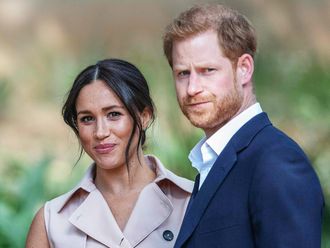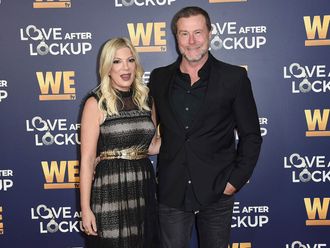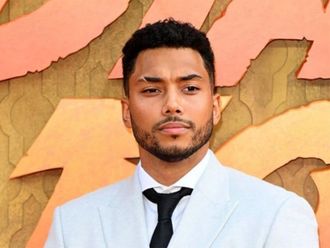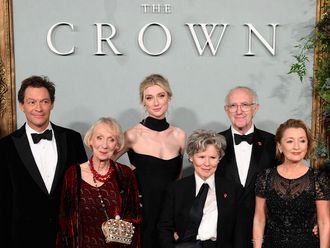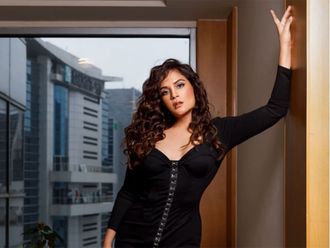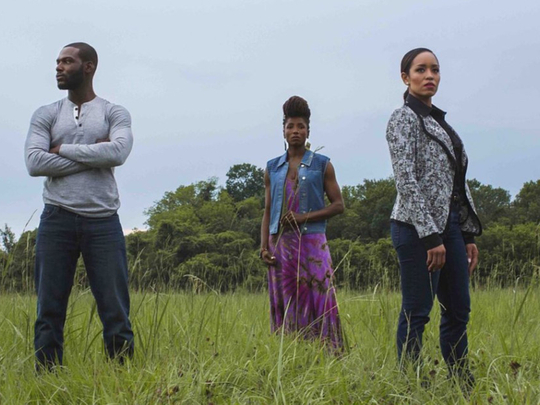
Queen Sugar wasted no time announcing its boldness. Debuting on the Oprah Winfrey Network last September, the very first scene of the series opened with a tight shot of Nova (Rutina Wesley) in bed. She was an image of African-American beauty rarely seen on television — flowing dreadlocks, a tattooed arm and lean and muscular legs — while the cool tone of the lighting enhanced the richness of her dark brown skin.
The show, which returns for its second season June 20, is also representative of something more: a recognition that both critical praise and business success can be had with intelligent scripted programming for, and about, black lives in the United States.
Broadcast TV networks have increasingly pursued this audience with black-themed shows like Empire on Fox or Shonda Rhimes’ Thursday night lineup on ABC, headlined by Scandal. And two black-oriented cable networks, OWN and Black Entertainment Television, facing a television landscape more competitive than ever, have been prodded to add creative ambition to their business models, and now heavily invest in scripted programming that reflects the lives of their predominantly African-American female audiences and their families.
The result: vastly improved ratings, and in the case of OWN’s Queen Sugar, created by Ava DuVernay (the director of the Oscar-nominated Selma and 13th), a growing reputation for developing prestige drama.
Whether this moment of black-themed scripted shows will last is unclear. “To call this the golden age of African-Americans on TV is a little too much, maybe we’ll just say, ‘It’s a silver age,’” said Beretta Smith-Shomade, a professor of media and film studies at Emory University. “This is a time in which black shows are being looked at and funded in ways that they haven’t in the past. But, we know this stuff changes. One show gets on, a few will sell, and a couple shows go off, and then we go back to the white TV land we’ve had before.”
This creative awakening stems, in large part, from a bottom-line revelation: What was once considered only a niche market is now valued as an eager and highly engaged television audience.
“For marketers, our data shows that 73 per cent of whites and 67 per cent of Hispanics believe African-Americans influence mainstream culture,” said Andrew McCaskill, the senior vice-president of communications and multicultural marketing at Nielsen. “Creating smart, culturally relevant advertising campaigns that are inclusive of minority populations allows brands to build loyalty within communities of colour while maintaining general population acceptance.”
A recent Nielsen analysis of TV viewership, For Us by Us?: The Mainstream Appeal of Black Content, found that from 2011 to 2015, ad dollars placed on shows whose viewership is more than 50 per cent black increased by 255 per cent.
At the same time, the rise of streaming services like Netflix and the continued proliferation of quality series from cable networks like AMC and FX have spurred other networks, both old and new, to keep pace. No longer are reruns, videos and cheap reality and talk shows enough to guarantee viewers and ad dollars.
OWN’s creation, in partnership with Discovery Communications in 2011, was marked by missteps: a lack of identity, low ratings and a failure to attract the white female viewership that made The Oprah Winfrey Show the most successful talk show in television history.
But by 2012, OWN found a glimmer of hope with the docu-series Welcome to Sweetie Pie’s, about Robbie Montgomery and her family as she runs a soul food restaurant in St. Louis.
“I think we were a little surprised about how successful Sweetie Pie’s was going to be,” said Erik Logan, the president of OWN. “Upon reflection, the show worked because the central character in that show, Miss Robbie, is somebody that our audience could see themselves in. She was a single mum, she raised her son, Tim, who fell into crime, became incarcerated, came out of prison and is dealing with a very real issue that is facing the community at that time and even still today. What it taught us was that we need more authentic, real storylines.”
Inspired by that success, Winfrey then partnered with the movie hitmaker Tyler Perry to produce shows, including The Have and Have Nots and If Loving You Is Wrong, exclusively for OWN. “What his shows did,” Logan said, “was shine a light on a different style of storytelling for us and the network: the scripted word.”
In 2016, OWN added two dramas: Craig Wright’s megachurch drama, Greenleaf, and Queen Sugar, a Lousiania-set drama about the Bordelon siblings, all of whom are battling their own demons, one another and the neighbouring Landrys, a white family that wants to buy the Bordelons’ sugar mill.
OWN’s prime-time schedule is now 75 per cent original scripted programming, and the ratings have followed. In the last five years, its prime-time audience has grown by 46 per cent (to 455,000 from an average of 311,000), while African-American viewership has grown by 168 per cent (to 298,000 from 111,000).
“When we started to gather the OWN tribe, and recognise who had come, the question in our meeting rooms was how do we now serve this audience — who is this woman?” said Winfrey. “She is an intentional seeker, she’s the kind of person who’s watching ‘Super Soul Sunday’ as her church. Many of them are single mums who are working, but who have dreams for their lives, their children’s lives, they’re in relationships, they’re getting married again. So we try to meet them where they are and serve them in an intentional way that reflects their lives back on themselves.”
DuVernay, who admits to being courted by other cable networks, ultimately chose OWN for Queen Sugar.
“I think there’s been historically many artists who have tended to centre black women in their work; the question is the compatible distributor, the compatible broadcaster who is also centring them and delivering that work,” she said. “Until OWN we didn’t have anything specifically for women of colour. Not like we are only for women of colour, but we can say ‘There’s something special here for you.’ The beautiful thing about cable is that we can say ‘We are for this.’”
At BET, which was known for the R’n’B and hip-hop music video shows Video Soul and later 106 & Park since its debut in 1980, a similar transformation was underway.
“I knew our audience had been demanding a scripted product from us — they wanted us to look like any broadcast network, whether it’s ABC or NBC,” said Debra Lee, who became president and chief executive of BET Networks in 2005. “They were very proud of BET, because we were the only network targeting the African-American community, and yet they wanted to see authentic, realistic versions of themselves.”
But changing course is not easy. “It took a while to get into scripted, especially when you’re coming from a music video background,” Lee said. “The investment is more, and we had to get different programming executives and development people. It really changes the business of the whole network, and now scripted programming is the cornerstone of what we do at BET.”
But rather than rebrand entirely, BET uses its scripted programming to draw from its musical past — the BET Awards show remains the network’s signature event. Dramas like The New Edition Story, a miniseries that drew an average of 4.4 million total viewers, and Irv Lorenzo’s hip-hop-themed Flags, debuting June 27, demonstrate that cultural continuity.
But there are limits to this embrace of smart scripted programming. Underground, the critically acclaimed drama about slaves attempting to escape a Georgia plantation just before the Civil War, was recently cancelled by WGN America. But both OWN and BET have passed on adding the bauble to their lineups, the $5 million-an-episode (Dh18 million) tag too pricey.
“I wanted to be able to save that show,” Winfrey said, “but it did not make good business sense for me.”



